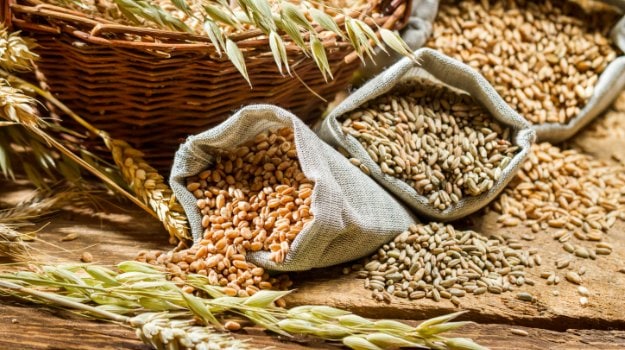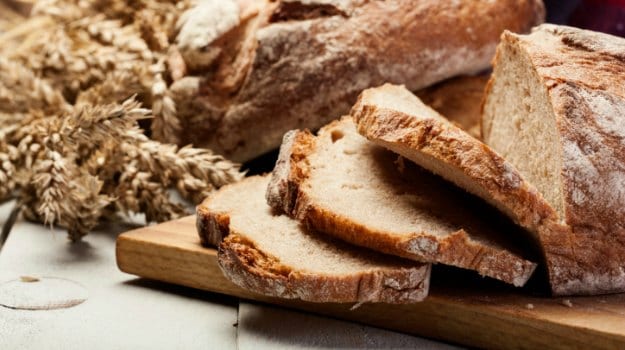PCOD, or Polycystic Ovary Disease, is a kind of hormonal disorder that affects one in 10 women. It refers to a condition when a woman has a number of small cysts in the ovaries. Besides unpredictable hormonal behaviour, this condition can trigger diabetes, infertility, acne and excessive hair growth.
It's a fairly common disorder, but one with no exact cure. Most PCOD patients are overweight and are advised to exercise regularly, which can further help to control the symptoms. However, majority of people have a completely normal body type.
What Could Cause PCOD
There is no exact cause of PCOD and doctors believe that some women have a predisposition to it and that it may run in the family. The first, most common symptom of this condition is irregular periods but if that's not the case, PCOD can largely go undetected. For a few women, PCOD is diagnosed when they're trying to get pregnant since this condition can cause problems with fertility. Besides an ultrasound, the other way to detect this condition is by conducting blood tests which includes insulin and hormonal checks like testosterone.
Symptoms of PCOD
Irregular periods happen to be the most common symptom of PCOD. Besides that, excessive facial and body hair also known as Hirsutism, diabetes, infertility, acne, weight-gain, oily skin, heart trouble and migraines are a few other symptoms. If periods are largely irregular and not corrected over a long period of time, then the risk of uterus cancer also goes up. Mood swings and bouts of depression could also be milder symptoms of PCOD.
Dietary Modifications for PCOD
There's no permanent cure for PCOD but the symptoms can be managed. With the right diet and adequate exercise, a few women have reported remarkable improvement. Have a look at the dietary do's and don'ts to help you beat, if not treat PCOD.
PCOD and Your Diet: The Do's and Don'ts
Dr. Gargi Sharma, dietician and nutritional expert suggests a few dietary modifications.
1. Include more of fruits and vegetables in your diet and avoid dairy-based products. Many health experts believe that dairy-based products can increase insulin levels which can aggravate acne and other symptoms.

2. Include lean meat like fish and avoid red meat. A 2013 study found that eating meat ups the risk of infertility and so it's best to avoid it. Limit sugary foods and drinks. If possible, put a complete stop to them.
(Health Leading Issue For Women: Experts)
3. Avoid saturated or hydrogenated fats. Make sure you check the label. Saturated fats are certain kind of fat molecules that are found naturally in many foods but mostly animal or dairy-based products. For example, lamb, pork, beef, cheese etc. Saturated fats can really raise your cholesterol and add calories. Certain baked goods also have saturated fat in them so be sure to always check the label.
4. According to Dr. Shalini Singhal, founder and chief nutrition consultant at Diet and Wellness Clinic, "Women with PCOS/PCOD have insulin resistance and therefore the diet we advise them is what we'd give to a diabetic. It needs to be rich in fibre with no or limited carbohydrates and processed foods."
She added, "Pick foods with low glycemic index such as that made from whole wheat, wheat flour and whole grain. Some other foods that have a low glycemic index are brown rice, brown rice poha and wheat pasta."

PCOD diet: Pick foods with low glycemic index
5. Dr. Shalini Singhal adds, "Avoid any form of sugar, jaggery, honey and refined cereals like maida, sooji, white rice, white rice poha etc. And always read product labels before buying groceries."
6. PCOD patients might experience water retention and the best way to beat that would be to eat small frequent meals and a lot of water through the day.
7. Dr. Gargi Sharma adds, "There are some natural herbs you can take to help keep your hormones in control, such as meethi dana, flaxseeds and cinnamon.
8. Lastly, along with the right kind of diet, it's absolutely crucial to exercise for around 30 to 60 minutes a day as it can reduce your insulin resistance. A high insulin resistance can cause you to be overweight; it can cause darkening of the skin and produce more testosterone.
9. Dr. Preeti Puri, a nutritionist at The Diet Clinic, Delhi says, "The ideal breakfast for a PCOD patient is fruits and multi grain bread with tomato and cucumber. For lunch, they should have oats or bran roti instead of regular roti.

PCOD Diet: There are some natural herbs you can take to help keep your hormones in control
10. Dr. Richa Garg from Arogyam, Delhi suggests, "PCOD patients should avoid trans fats, high sodium and fatty food. They should have a diabetic diet and work towards losing weight."
Select what you eat from the following food groups:
Cereals: Barley, quinoa, oats, oatmeal, muesli, bran flakes, whole wheat porridge, brown rice, multigrain bread
Pulses: Yellow moong, green moong, chana dal, beans, whole pulses
Dairy products: Skimmed or toned milk, soy milk, tofu, paneer, yoghurt
Fruits: Berries, plumps, peaches, oranges, papaya, pears, watermelons, apples
Nuts: Walnut, almonds, flaxseeds
Vegetables: Carrots, peas, broccoli, lettuce, mushrooms, tomatoes, peppers, onions, cauliflower, celery, spinach







